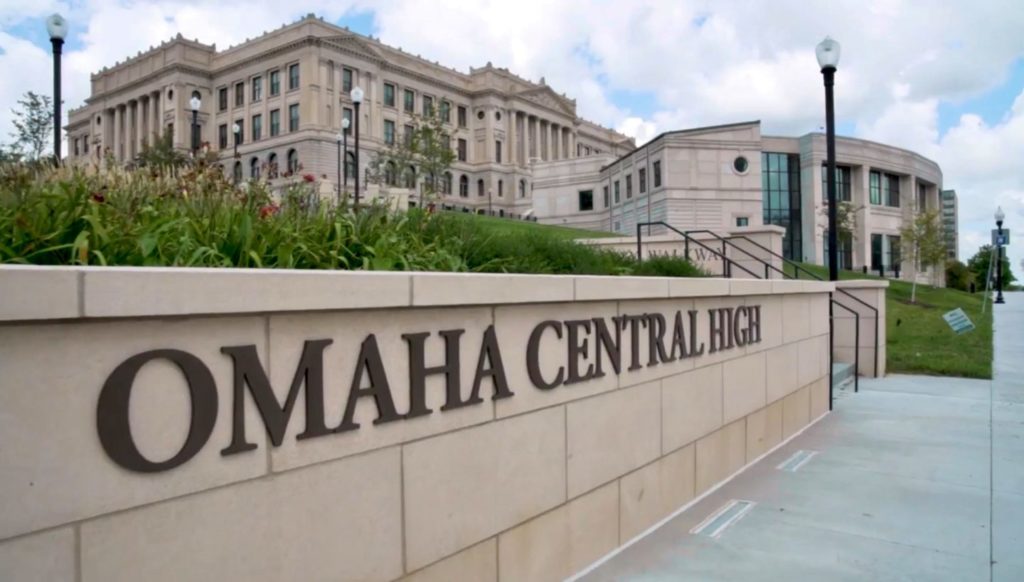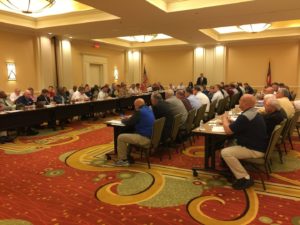As Catholic schools await guidance, Omaha-area public schools take their own stances on gender identity, pronouns
The recently released, then postponed, gender identity guidance for the Catholic schools of the Omaha Archdiocese has brought attention to the divergent policies in other nearby school…

The recently released, then postponed, gender identity guidance for the Catholic schools of the Omaha Archdiocese has brought attention to the divergent policies in other nearby school districts.
Four of the 11 area public school districts surveyed by the Omaha World-Herald have established guidelines regarding gender identity and preferred pronouns. The remaining seven either rely on general anti-discrimination policies or have no specific policy at all.
Some, such as Gretna Public Schools and Lincoln Public Schools, require explicit parental permission when it comes to recognizing student-preferred pronouns or gender identity, while others address the issue on a case-by-case basis.
Teachers and other staff in Gretna are also precluded from reaching out to parents for clarification without express permission from the student involved.
At least two districts require teachers and staff to recognize a student’s stated gender identity and preferred pronouns in all circumstances. Nebraska’s third-largest city, Bellevue, enacted such a policy in 2015, with Omaha Public Schools following suit two years later.
The legal ramifications of gender identity issues in public schools have led many districts to consult their legal teams for guidance. In fact, Gretna’s policy was crafted by its attorneys and was not voted on by the school board.
The revised policy on gender dysphoria from the Archdiocese of Omaha is expected to be released in early Spring of 2023.
The 70 Catholic schools in eastern Nebraska overseen by the archdiocese have been instructed to follow previous guidelines after the new policy, originally intended to take effect Jan. 1, was postponed. That policy said pronouns, dress codes and participation in sports would be determined by biological sex at birth.
The new policy also would ban “gender-affirming” interventions such as the “use of hormone medications and surgery, all things that run counter to Catholic tenets on human sexuality.”
The policy clearly stated that students, parents and volunteers who did not agree with church teaching should consider whether a continued relationship with Catholic schools was appropriate for both parties, which some have taken as a threat to dismiss students and volunteers from school – and to fire dissenting teachers – although the policy did not specifically say so.
Archbishop of Omaha George Lucas responded to the uproar by delaying implementation of the policies until the 2023-24 school year, promising the revised policies will be “more clearly focused and will not compromise the teachings of Jesus Christ and the church.”
Omaha joins many other bishops across the country – including in Springfield, Illinois; Arlington, Virginia; Green Bay, Wisconsin; Sioux Falls, South Dakota; and the state of Minnesota – who have written similar policies anchored in church teachings to guide their schools and parishes.
In each case, the policies have generated vocal opposition from LGBTQ quarters, but have been largely welcomed by most Catholics who see the church as fulfilling a necessary leadership role amid a contentious and divisive national debate over homosexuality, transgenderism and schools.
Lincoln Archdiocese Bishop James Conley wrote of this debate in a column regarding the proposed addition of sexual orientation and gender identity to a list of protected classes in a Lincoln City Ordinance.
“Those who find themselves confused about their own gender and identity, something known as gender dysphoria, deserve our mercy and compassion,” Conley wrote.
However, the idea of uncritically indulging the ideations of the gender dysphoric leads to a misinterpretation of the individual’s role in their families and larger society, Conley explained.
“Mercy without truth is a false kind of mercy, a mere sentimentalism. And truth without mercy is a cold and cruel dictate that does not recognize the struggles and weakness of our fallen humanity,” he wrote.



